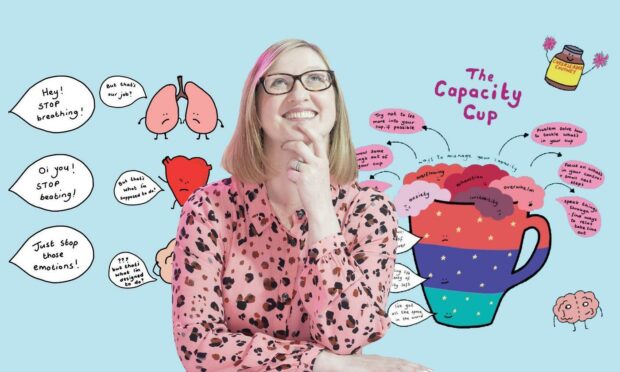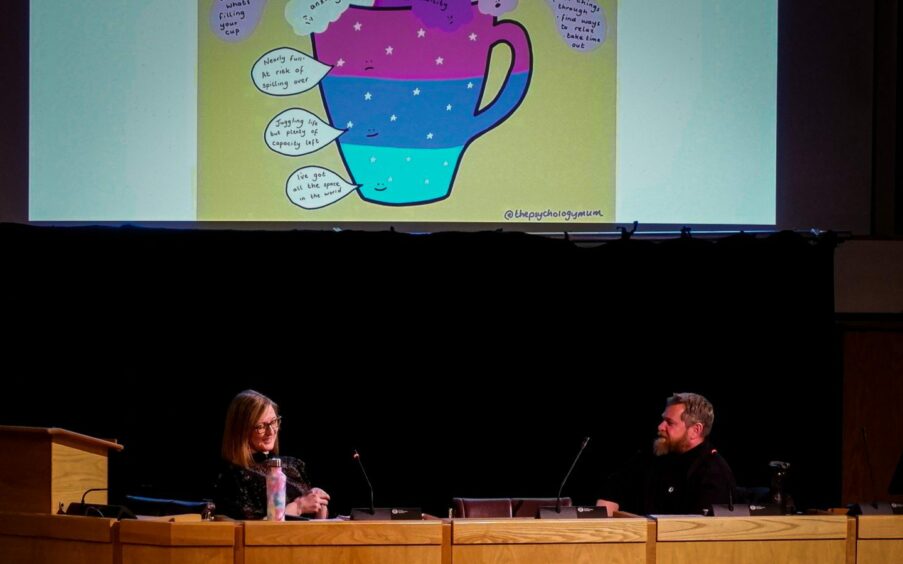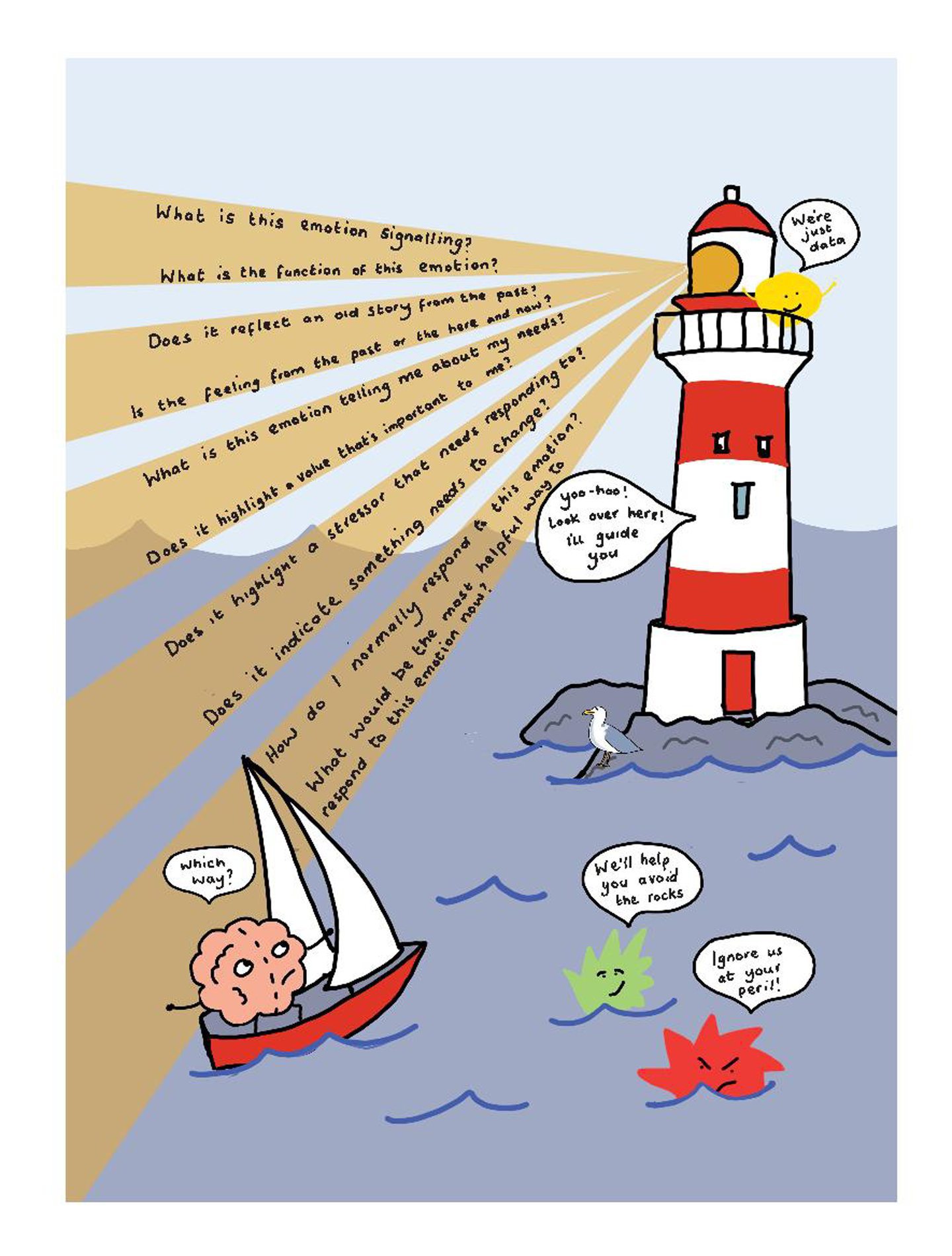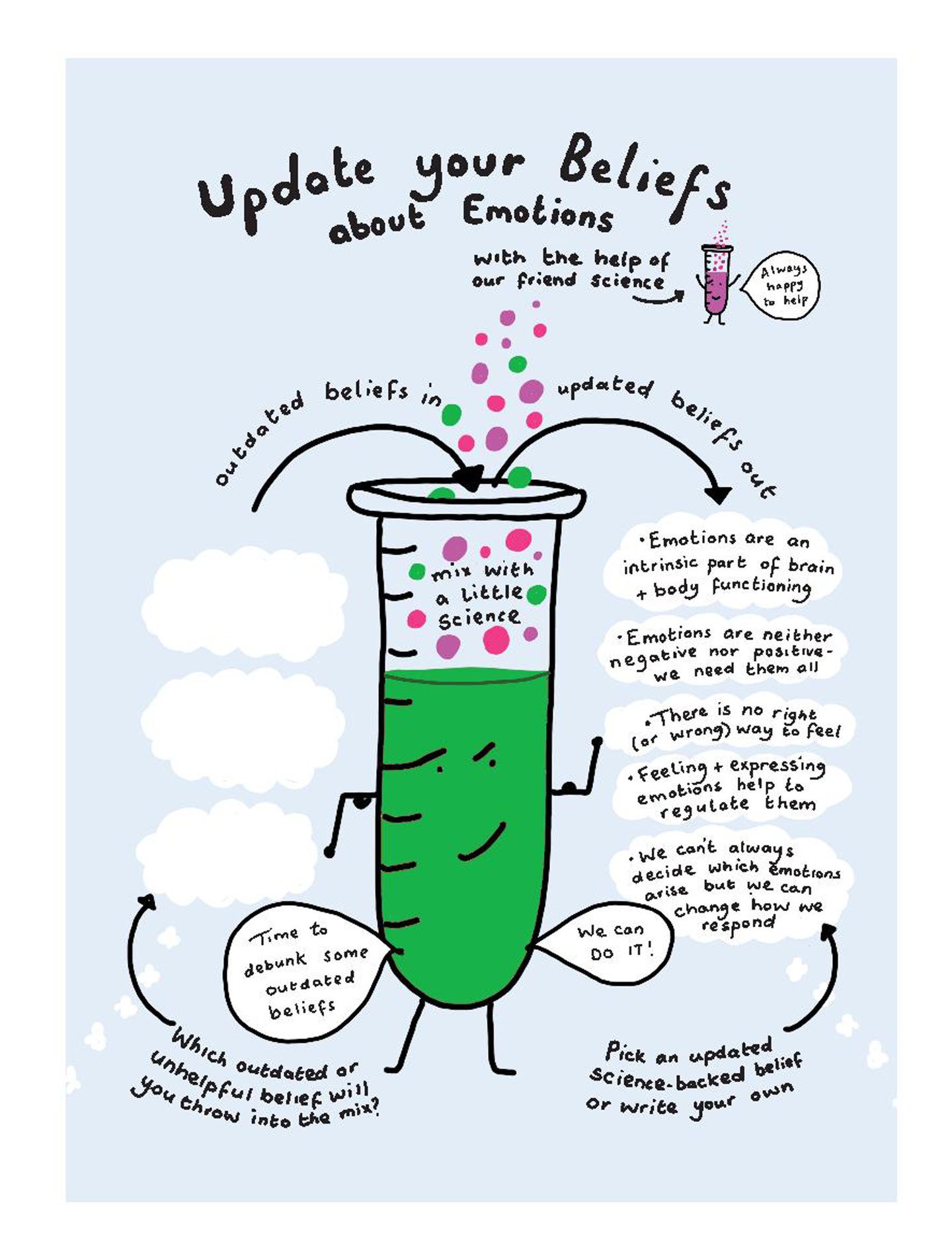Ever had that feeling when you’re just filled with absolute rage?
You probably thought it was a bad emotion, that you just needed to ignore it to keep it under control.
But Aberdeen psychologist Emma Hepburn says there’s actually no such thing as a good or bad emotion and that they all serve a purpose in our lives.
She’s just written a new book A Toolkit for Your Emotions to help people get to the bottom of what they’re feeling.
And she says we just need to break our emotions down and understand them better so we can start to use them as tools.
But how can we break emotions down?
Breaking down your emotions can help you figure out why you’re actually feeling the way you do.
So if you think about why you’re really feeling anger it could be because you’re actually overwhelmed, jealous or hurt.
Understanding our emotions can help us make decisions based on what’s really important to us.
“Emotions really are at the heart of everything we do,” Emma, a lecturer at Aberdeen University explains. “It’s a key skill for navigating life.
“So it’s so important to understand them and think about how we respond and what we do with them.”
How can our emotions help us?
Through breaking our emotions down we can work out what we actually need more, or less of, in our lives.
Feeling stressed, Emma says, might indicate that we need to ask for support, or that there’s a problem we need to solve.
This might mean we’re overwhelmed and need to evaluate our workplace demands.
Or it may be showing us that we’re not meeting our values in life and we need to change something.
Why is anger not a bad emotion?
She highlights that we’re still living with the old belief that we should only feel good emotions, like happiness, and that’s what we should always be striving for.
“But actually, difficult emotions have just as much utility,” she says.
“They can be beneficial if we learn how to respond to them because they’re telling us something as well.
“Many positive changes in the world have been driven by anger at injustice, discrimination and unfairness.
“Rosa Park’s anger about racial discrimination led her to sit on that bus and not move.
“Greta Thunberg’s anger at climate change drives her environmental campaigns, which positively impact on the world.”
Aberdeen psychologist’s new book: What else will you find inside?
Emma’s new book is packed with tips to help you figure out the reasons behind your emotions and break the patterns you get stuck in to help change the way you respond.
There’s exercises which show how you can interact with your emotions differently and also help you become better equipped to respond to the tough times.
It’s her latest book written to make psychology more accessible.
A Toolkit for Your Emotions is now available at high street bookstores and also online.















Conversation